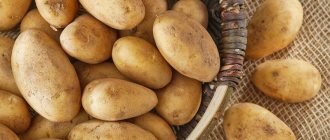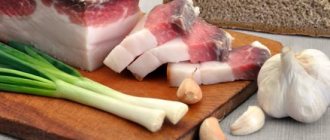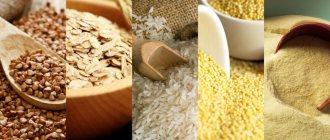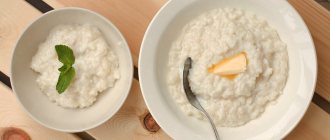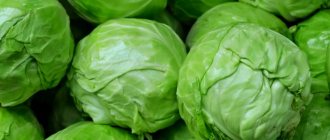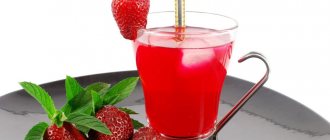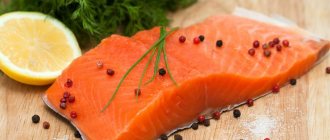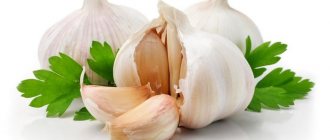What fish can you eat while breastfeeding?
Fish is one of the healthiest foods for humans, as it contains a huge amount of nutrients, vitamins and microelements. Fish does not lose its value during breastfeeding and is also very useful. Many mothers often wonder what kind of fish can be consumed so that it does not harm the child? This question is very important, but you should also know in what form it can be consumed so that the baby does not have an allergic reaction.
Pros of eating fish
Eating fish dishes by a nursing mother is very beneficial for the baby, since, thanks to vitamin D, the calcium entering the child’s body is absorbed in full. This process is very important for the proper development of a strong skeletal system and the growth of good teeth in a child.
It is easier for any body to digest fish than meat, so this product helps to normalize the functioning of the digestive system and intestinal tract of both mother and child.
Thanks to Omega 3 acid, the cardiovascular system becomes stronger. This element has a beneficial effect on the mother’s body, and is also given to the baby with milk. Fish is endowed with protein, which is easily digestible, which creates a barrier to the formation of lactic and uric acid in a woman’s body. This process protects the kidneys of the woman who has given birth, whose body is weakened and adapts to the previous functioning observed before pregnancy.
The formula for losing weight is simple - burn more calories than you take into your body. The mistake of all those who lose weight! Girls, just lose weight, here’s the recipe: before breakfast... Read more...
However, if a woman is susceptible to an allergic reaction to this or another product, she should refrain from eating fish dishes. You can start introducing fish into the mother’s diet only when the allergy goes away completely, and 6-8 months after the birth of the baby. But you should not eat more than 30 g of this product at one time.
Types of preparation
- Red fish is a storehouse of Omega 3 fatty acids, but also a strong allergen. Therefore, when breastfeeding, it can be eaten in small quantities. It should also be noted that before eating red fish, you need to make sure that the child is accustomed to safer types of this product.
- Breastfeeding mothers are strongly advised not to eat salted fish. The salt it contains leads to fluid retention in the mother's body and can cause deterioration in kidney function and the appearance of edema. Also, salted fish does not undergo heat treatment, which creates a risk of infection with parasites.
- Due to the cooking method, smoked fish loses most of its beneficial substances and acquires harmful carcinogens. If you eat smoked fish for a long time, there is a risk of developing chronic diseases in the mother and also in the child. And sometimes they lead to cancer. Also, short heat treatment can lead to incomplete destruction of parasites and infection of humans. This is why it is not recommended to eat smoked fish during lactation.
- Dried fish is often prepared with salt, which not only leads to kidney problems, but can also change the taste of the milk, making it unpleasant for the baby. Thus, the child may simply refuse to eat, which should under no circumstances be allowed.
- River fish is very useful for a nursing woman if it is steamed, oven-baked or boiled. You should not use oil, as it significantly increases the fat content of the dish.
- Fried fish dishes are harmful in any case, since during their preparation all the beneficial substances are destroyed, and carcinogens appear from the fried oil.
- Dried fish is prohibited during lactation for the same reasons as salted fish.
- Raw fish should never be present in the diet of a nursing woman, as it increases the risk of poisoning and parasite infection.
- The most valuable product will be either fresh or chilled fish, but in frozen fish almost half of the nutrients are destroyed.
If it is possible to purchase only a frozen carcass, it should be properly defrosted.
To do this, place the fish in lightly salted water. Thanks to such gentle defrosting, beneficial substances will remain in the product.
Types of fish
Many people love herring, and breastfeeding women are no exception. There is no strict ban on herring during lactation. But you need to eat it with great caution, since very often the baby becomes allergic to the milk of the mother who ate the herring. Most often, in the first three months of breastfeeding, herring is prohibited, since the baby’s stomach has not yet developed and become strong enough. It is worth remembering that herring should not be consumed daily.
You can start introducing this product into the mother’s diet with only 1 piece per day, constantly monitoring the baby’s reaction to milk. If the baby has not reacted to herring in any way, then you can eat it. But it should be remembered that herring can be present on the menu of a nursing woman only 1-2 times in seven days. The best option to choose would be fish that has white meat and medium fat content.
It is recommended to give preference to cod, hake, pollock, pike perch, and sea bass. Among river fish, perch, bream, trout, and pike are excellent.
Since during the feeding period a woman has to simplify her menu as much as possible, her body experiences an acute shortage of vitamins and microelements. Due to its composition, fish during breastfeeding can make up for these losses, but it must be consumed 2 times a week.
What kind of fish a mother will choose that is safe for her baby is a matter of her taste, but do not forget that you need to focus only on those species that are not allergens. Also try to eat fish dishes on days when the baby is feeling well, does not suffer from colic, and there is no diathesis on the skin.
Because if you eat fish dishes when you have an allergic reaction, it can only worsen. If the baby is allergic from birth, the mother’s diet can be changed with great care, selecting products based on special tests. Individual information about the choice of fish in a specific situation can be obtained at an appointment with a doctor.
grudnichky.ru
The benefits of fish for women during lactation
Including a variety of fish dishes in your daily diet is very useful not only for the mother, but also for the child, as this is a treasure trove of valuable microelements that enter the baby’s body, have high nutritional value and are absorbed in full.
Let's take a closer look at the benefits of fish during lactation:
Fish contains healthy omega-6.3 acids
- Thanks to these substances, the cardiovascular system is strengthened (they maintain tone, thin the blood, and normalize blood pressure).
- The process of stabilizing metabolism and restoring hormonal balance during the guard period is accelerated.
- The functioning of the brain, heart, and the movement of signals between nerve cells also improves.
- Omega acids improve immunity and suppress allergies, and they are also antioxidants that can prevent the occurrence of cancer.
Protein
Fish contains highly digestible protein, which creates a barrier to the formation of lactic and uric acid in a woman’s body.
The protein protects the kidneys of a woman, whose body is weakened after childbirth and is in a state of adjustment from pregnancy mode to standard functioning.
B vitamins
This product contains pantothenic acid, riboflavin, cyanocobalamin, pyridoxine, which are involved in the functioning of the nervous system, increasing immunity, and are also directly involved in carbohydrate metabolism and hemoglobin synthesis, restoring the cellular structure of teeth, hair, skin and nails.
Vitamin D
This vitamin is an integral part of the process of calcium absorption, which is vital for a child.
Vitamins E, A, C
Fish also contains vitamins E, A, C. They are responsible for the body’s immune defense, the functioning of the bone and joint systems, and skin regeneration.
What kind of fish can a nursing mother eat?
Fish is a source of protein and Omega-3 acids, which help the child’s brain development. It should be consumed during lactation. What kind of fish can a nursing mother eat?
The benefits of fish for nursing mothers
The protein contained in fish is easily and quickly absorbed by the body. Dishes made from it have a high nutritional value and are low in calories.
The product contains such useful substances as:
- Unsaturated fatty acids that have a positive effect on the development of the baby's nervous system. In addition, they regulate metabolism and hormone production.
- B vitamins are presented in a complete set - B1, B2, B12, B6. They help with the functioning of the nervous system.
- Vitamins C, A, E support the immune system and are responsible for skin regeneration processes. Vitamin D helps the child's body absorb calcium completely.
- Minerals are contained in large quantities. Calcium and phosphorus participate in the formation of the skeletal system, strengthen blood vessels and capillaries. Iodine ensures proper functioning of the thyroid gland and nervous system.
If during pregnancy a woman regularly consumed fish and other seafood, then the baby is already familiar with the taste of the product. Therefore, most likely, problems will not arise during lactation.
How to introduce it into the diet
However, as a protein product, fish can provoke an allergic reaction. Therefore, it is recommended to use familiar varieties when breastfeeding, especially in the first months after childbirth.
If no unpleasant reactions are observed on the part of the baby, you can diversify the menu with new types of seafood. But this should be done carefully.
Necessary:
- start with small quantities;
- take a break for several days;
- if the baby is not allergic, you can re-use the product in the same quantity;
- monitor the baby’s reaction, since each subsequent intake of food can make negative manifestations more pronounced;
- If any negative reaction occurs, the product should be immediately excluded from the diet and replaced with another type of fish.
It is advisable to purchase fresh fish, or at least frozen. Pediatricians answer negatively to the question of whether a nursing mother can eat canned, salted or smoked fish. These foods contain chemicals that are harmful to children. In addition, salt tends to accumulate in the ducts of the mammary glands and affect the taste of milk. For this reason, the baby may be unable to eat.
Which one to choose
During the period of breastfeeding, women are recommended to eat low-fat sea fish, such as perch, mullet, tuna, hake, sole, halibut, sea bass, saury, pollock, herring. Eating river species is very beneficial, as they contain a minimal amount of allergens, such as bream, pike, burbot, carp, and lake trout.
During lactation, all types of red fish (for example, river salmon) should be excluded from the diet. Despite the existing benefits and nutritional value, it contains too much unsaturated fatty acids and calories, and this can be harmful to the baby’s health.
For the same reason, fatty varieties such as mackerel and herring are not recommended. Excess fat can cause indigestion in a child.
It is forbidden for a nursing mother to eat the meat of large ocean fish. Species such as shark and king mackerel contain significantly higher than permitted safe levels of mercury. This carcinogenic substance harms any organism, but for a small child there is a high risk of negative effects on the nervous system.
Cooking methods
To reduce allergenicity, fish should be thawed in cold salted water. It is better to prepare fresh product immediately, as it spoils quite quickly. In the diet of a nursing mother, fish should be boiled, baked or steamed. This way it retains all the beneficial substances in full.
When fried under high temperature, it loses most of its vitamins and fatty acids. Fish stewed with vegetables will be tasty and healthy. You can diversify the menu with steamed cutlets or minced meatballs.
Fish broth is a nutritious and tasty product. In addition, it enhances lactation. To prepare soup based on it, it is recommended to pour cold water over the fish, bring to a boil and boil for 2-3 minutes. This broth is discarded because it contains many extractive substances that are unnecessary for the body of the mother and child.
A secondary decoction should be used. You can prepare meatball soup by seasoning it with a small amount of vegetable oil or butter.
According to pediatricians, fish should be included in the diet no more than 2-3 times a week. It is not advisable to eat dishes made from it in the first month after childbirth. For some time, the baby’s body must adapt to the environment, and fish, as an allergenic product, can manifest itself in a negative way.
Video
You can learn about proper nutrition for a nursing mother from our video.
comments powered by HyperComments
grud.guru
Cooking smoked fish
A nursing mother is sometimes allowed to eat some freshly prepared smoked fish. It should be prepared observing a number of conditions:
- predatory river fish or sea fish with white meat are used, which are not classified as highly allergenic;
- freshly caught or deep-frozen fish (thawed in salt water at room temperature to preserve nutrients);
- smoking should be done on hardwood wood that does not contain resin (alder, poplar, oak, maple, ash, hornbeam, beech, fruit trees);
- only dry firewood or shavings are used; at a humidity of more than 25%, the product will not be smoked, but will simply darken, acquiring an unattractive appearance;
- smoke temperature - at least 80°C so that the fish undergoes heat treatment;
- Do not use liquid smoke.
When breastfeeding a baby over six months old, the mother is allowed to periodically eat properly prepared hot smoked fish, but in small quantities and monitoring the baby’s reaction to the product.
Subscribe to our VKontakte group
How to choose fish for a nursing mother's menu?
Fish is an important product in the diet of every person. If there is no allergic reaction to fish, it is recommended to eat fish dishes at least once a week. But nursing mothers need to be careful when choosing fish for the menu so as not to harm the baby.
Beneficial features
Fish, primarily white fish, is a source of protein that is very well absorbed by the body. In addition, the product contains:
- fatty acids, which help a woman quickly restore her health after pregnancy and childbirth, contribute to the proper development and growth of the baby;
- microelements, including calcium, iodine and phosphorus, necessary for strengthening bones, developing the child’s brain, and improving sleep;
- B vitamins, which strengthen teeth, nails and hair, improve hematopoietic function.
Regular consumption of fish dishes will help reduce the content of bad cholesterol, relieve stress and normalize the nervous system, and reduce fatigue.
How to introduce fish into your diet?
According to medical observations, if a woman did not refuse fish dishes during pregnancy, then it is allowed to eat them during lactation. It is important to check if your baby is allergic to fish protein. There is also a fear that the baby may not like the fishy taste of the milk, and he will refuse the breast.
In the first months of a baby’s life, a nursing mother is recommended to eat only boiled or steamed fish - in this case, it retains the bulk of the nutrients and there is no risk of harmful substances getting into the milk. Closer to the baby's year, you can add baked fish to your mother's menu, then fried fish, but it is better to eat it without the skin soaked in oil.
You should gradually introduce fish dishes into your diet, starting with a small piece of boiled fish (about 50 grams). Monitor your baby's reaction over the next two days - it is important that there is no redness of the skin or rashes. Restless behavior of the baby, refusal of breast milk, gastrointestinal upset are also contraindications to further use of the product.
If the experiment was unsuccessful, it is repeated after a couple of months - during this time the baby’s body adapts to many products and becomes more mature. The exception is an acute allergic reaction to fish protein (up to anaphylactic shock) - in this case, you should not try to reintroduce fish dishes into the menu.
Why are fish dishes dangerous?
If the baby is not allergic to fish, then the mother can include safe fish dishes in the menu. These include boiled and steamed fish, as well as baked fish in foil or a sleeve. Other dishes pose a certain danger to the baby and should be used with caution.
Ear. Fish soup made from freshly caught or frozen fish is quite acceptable provided one condition is met: the fish soup must be cooked in secondary broth. The water in which the prepared fish is placed should be drained two to three minutes after boiling, since it contains a maximum of extracts and chemical compounds that easily accumulate in sea and river fish. After refilling with clean water, the soup is cooked.
Canned food. Any canned food is dangerous for babies because they contain chemicals for long-term storage. When preparing some types of canned fish, vegetable oil of dubious quality is also used.
Preserves. Fillet, cut into small pieces, in a variety of fillings, is widely represented on store shelves. Preserves contain not only preservatives, but also a large number of spices, and the bones from the fillet are not removed mechanically, but are dissolved with special compounds that are dangerous for the baby.
Salty fish. Foods with excess salt content are harmful for nursing mothers. A large amount of salt in food leads to edema and increases the load on the kidneys and cardiovascular system.
Lightly salted sea fish. It contains a maximum of useful substances, since it has not undergone heat treatment and there is no excessive amount of salt. But such a product is dangerous with a high probability of poisoning if stored incorrectly.
Raw fish. Consumption of such a product is extremely dangerous to health - there is a high risk of poisoning or infection with parasites that affect river fish. Deep-frozen sea fish is safer, but there is no guarantee that the product was properly stored before it reached the store counter.
Dried and dried fish. Contains a lot of salt and is practically devoid of nutrients. If the manufacturing technology is violated, it can cause poisoning.
Smoked fish. Substances that enter the product during the smoking process are unsafe for children. It is also important to take into account that in industrial production they try to smoke the already stale catch, which they did not have time to “put into use” otherwise. Recently, classic smoking has been replaced by processing the product with “liquid smoke,” which makes it even more dangerous to health.
What to choose?
If you buy an industrially frozen product, carefully inspect and smell the carcass during thawing - it should not have the smell of rancid fat and should not fall apart in your hands. When buying fresh fish, pay attention to the elasticity of the carcass; the gills should be light.
Most varieties of sea and river fish are allowed for consumption during lactation; the choice mainly depends on personal preference. But some species deserve special attention.
Mackerel. A very healthy fish, 200 grams of fillet contains the daily requirement of iodine for an adult. But at the same time, mackerel is a strong allergen, and even if the baby tolerates other fish normally, there is a risk of a reaction to this product.
Salmon and trout. In the store you can only find artificially grown salmon and trout at affordable prices. This means that the fish received antibiotics and growth stimulants along with the food - substances that can cause serious harm to the baby if they enter his body along with milk.
Lightly salted salmon for sale is tinted to make it look attractive; it should not be bought to feed a nursing mother. The safest varieties of red fish include “wild” ones - sockeye salmon, coho salmon, pink salmon. You should buy it frozen for preparing healthy dishes.
Frequent consumption of fish dishes is not recommended - there is no guarantee that the product does not contain chemicals hazardous to health, including heavy metals, since a lot of industrial waste ends up in rivers and seas.
vskormi.ru
Beneficial features
Red fish, which live in cold waters, contain a large number of useful substances, including:
- B complex of vitamins, as well as vitamins A, E, D;
- fatty acids, which are highly biologically active and have a beneficial effect on the female body recovering after childbirth;
- valuable protein, necessary for both mother and baby;
- a wide range of amino acids, including arginine, lysine, leucine, etc.;
- extractive compounds, which improve the functioning of the child’s digestive system;
- micro- and macroelements important for the health of internal organs and systems, for the good condition of the skin, teeth and hair.
Omega-3 unsaturated fatty acids protect the body from the effects of free radicals and reduce the risk of malignant tumors. Nicotinic acid is necessary for mother and baby to strengthen the nervous system.
Sodium and fluorine improve the functioning of the circulatory system and maintain optimal water metabolism. Iodine is required for the proper functioning of the thyroid gland.
It is worth noting that red fish, to which pink salmon belongs, is a dietary product. It is well absorbed by the body and does not provoke the formation of fatty deposits.
What kind of fish can nursing mothers eat?
While breastfeeding, a young mother needs to carefully monitor her diet. There is a myth that fish should not be consumed while breastfeeding. However, this is a big misconception, because fish not only is not a prohibited food, but on the contrary, it is very useful for nursing mothers. It contains a large amount of phosphorus and protein, as well as quite a lot of iodine, selenium and calcium.
In this article we will tell you what kind of fish nursing mothers can eat and how best to prepare it.
Regular consumption of white fish has a beneficial effect on the health of a nursing mother, and also promotes brain development and strengthens the baby’s skeleton. In addition, the minerals contained in fish in fairly large quantities have a beneficial effect on a newborn’s sleep.
Meanwhile, many people are concerned about the question: can nursing mothers eat fried white fish? It is better to avoid this dish while feeding your baby. Since frying white varieties of fish takes more than 15 minutes, all the beneficial substances contained in it have time to be destroyed, which means this product will not bring any benefit. It will be much better and healthier to steam the fish.
Can nursing mothers eat salted red fish?
Eating red fish while breastfeeding is quite dangerous, since it has a fairly high allergic potential. However, if a young mother has never suffered from allergies in her life, it is worth trying to eat some red fish to see how the child reacts.
However, eating it in salted form is not recommended for nursing mothers, since it negatively affects the functioning of the kidneys of both mother and baby.
Can nursing mothers eat smoked and dried fish?
These products are prohibited while breastfeeding your baby. Not only are they not beneficial, but they can also be harmful to health. Dried fish contains too much salt, and consuming it puts undue strain on the kidneys.
Smoked fish generally contains a large number of carcinogens, and, in addition, all parasites are not destroyed in it, due to insufficient heat treatment.
Related articles:
| Can a nursing mother have milk? During feeding, a young mother can receive a lot of useful and not so useful advice from relatives and friends on how to improve lactation. Some “advice” says that mothers need to drink more milk. Is this true and is it even possible for nursing mothers to drink milk? Will this harm the baby, because milk, as we know, is an allergenic product. Let's look into this issue together. | Can a nursing mother eat persimmons? The list of prohibited foods for a nursing woman is quite large, especially fruits and vegetables with bright colors, and the older the child, the smaller he becomes. And what category does ripe, juicy and incredibly healthy persimmon belong to? Let's figure it out. |
| Can a nursing mother eat prunes? Some people like prunes, some don’t, but their benefits are obvious and well known, so let’s figure out whether they can be consumed by a nursing mother. After all, she, like no one else, needs healthy food rich in vitamins and minerals. | What a nursing mother should not eat - list of foods The menu of a nursing woman is subject to strict adjustments; however, the idea of healthy eating comes from pregnancy, but after childbirth, strict restrictions are introduced on a number of products. But this does not mean at all that mom’s menu should be lean. |
WomanAdvice.ru
Fish while breastfeeding
From the article you will learn how healthy fish is, whether a nursing mother can eat fish dishes, and how to recognize a fish allergy in a baby in time. We will tell you whether red fish is really dangerous when breastfeeding, and in what cases and what types of fish should be avoided during lactation. You will learn how to properly prepare fish during breastfeeding, and also learn several fresh, tasty and healthy recipes for the steamer, oven and stove.
The benefits of fish during breastfeeding
The diet of a nursing mother should contain large quantities of easily digestible animal protein. The ideal option is fish - a product of high nutritional value, which only takes about three hours for our digestive tract to digest.
Fish contains vitamins A, E, D, and almost the entire group B. They are necessary for the full development of the baby’s nervous, endocrine, circulatory and immune systems.
The minerals iodine, selenium, phosphorus, and calcium are needed by the baby for the rapid growth of bone tissue, skin and vascular wall. These compounds are also involved in the regulation of hormonal processes.
Fish is the main source of omega-6 and omega-3 acids, which are responsible for fat metabolism and are part of the membranes of all cells in the body. Their deficiency often occurs in babies under one year of age, resulting in low weight, slow growth, flaky skin, and problems with bowel movements. For this reason, fish must be included in the menu of a nursing woman.
During the lactation period, not only the baby, but also the nursing woman needs vitamins and minerals. The mother requires nutrients due to blood loss during childbirth, as well as the past pregnancy, during which her body supplied the baby with everything necessary.
Allergy
Fish is one of the potential allergens for your baby. Red breeds are considered the most allergenic; among white species, herring, flounder, and mackerel most often provoke allergies. The main cause of allergy to fish is intolerance to fish muscle protein, intolerance to protein fragments of fish products (caviar allergy).
It is preferable for a young woman to consume varieties such as pollock, cod, pike perch, catfish, and hake. River fish is very useful. Of the red species, it is rich in vitamins and fatty acids, and is also least contaminated with heavy metals: Chinook salmon, coho salmon and char. Fish varieties such as salmon and trout are most often found on store shelves, but they can be eaten no more than once every 2-3 weeks, given their artificial breeding.
You should start with a small piece of white fish and repeat after 2 days.
Such a long period of abstinence is explained by the delay of the allergic reaction, which can appear only after the second or even third use.
An allergy should be suspected if, on the first or second day after eating, the baby develops peeling, redness, rash, and changes in stool. Be sure to contact your pediatrician. If the allergy manifests itself in the form of a cough, you should consider the possibility of the cough turning into an attack of suffocation and swelling.
Having an allergic reaction does not mean giving up seafood completely. You may be able to replace one type of fish with another, which will not affect the baby’s health in any way.
What kind of fish should you not eat during breastfeeding?
A nursing mother should definitely not consume:
| raw fish | especially the one used to make sushi - it can be infected with parasites |
| smoked, pickled, salted, dried | Such goodies often contain many preservatives and flavor enhancers, which can be dangerous for the baby |
| canned fish | their long-term storage is also ensured by preservatives, plus in canned products almost all useful substances are destroyed |
| oceanic rocks | the mercury content in them exceeds the permissible concentrations, it is necessary to refrain from consuming such varieties of fish as: tuna, sea eel, wahoo, striped bass, mackerel, sturgeon, shark, bluefish, croaker and oysters |
| frozen fish fillet | in order to remove all the bones from it, substances harmful to health are used |
How to cook properly
What fish can you eat while breastfeeding? In the first months of the baby’s life, eat boiled and steamed fish; recipes for a slow cooker are also suitable. From three months you can switch to stewed and oven-baked dishes; closer to 8 months, try fried fish (it is better to remove the oily skin before eating).
Fish cutlets and meatballs are welcome. It is also better to stew them or cook them in a double boiler. During the lactation period, it is undesirable to use spices when preparing dishes - they can provoke an allergic reaction and negatively affect the child’s digestion.
Delicious recipes
White fish soup
In a rice container we place several small pieces of washed and peeled white fish (hake, pike, herring are suitable). Finely cut one small carrot and one cucumber into cubes, two potatoes into larger cubes. Add 2 tablespoons of pearl barley porridge or 1 tablespoon of pearl barley.
Fill with water, add a teaspoon of salt (without a slide) and a bay leaf. Set for 50-60 minutes (depending on the power of the steamer). You can add greens to freshly prepared soup.
You can also cook fish soup on the stove; first, cook the fish and cereal for about 30 minutes, then add the cucumber, carrots, and onions stewed in a frying pan. Add potatoes and bay leaves to them, cook for about 15-20 minutes.
Trout in the oven
We cut the cleaned and washed trout into several pieces of approximately the same size. Rub salt on top, place a small slice of lemon and herbs inside each piece. You can also sprinkle dried or fresh basil on top.
Wrap each piece in foil for baking. Set the timer for 40-50 minutes, temperature – 170-180 degrees.
We hope that you appreciated all the benefits of fish during breastfeeding. Do not forget about caution - now you are responsible not only for your health, but also for the health of your baby.
club-mam.ru
